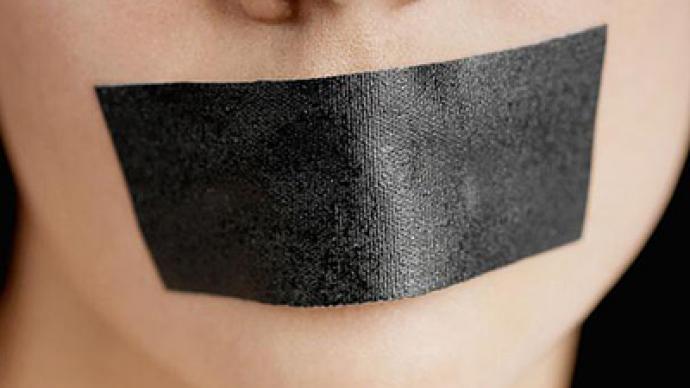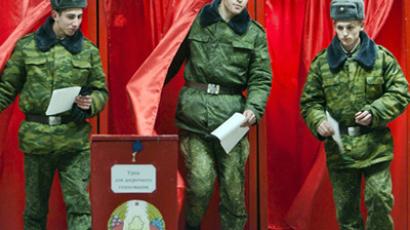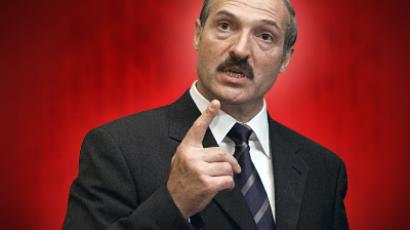Belarus deports Russian activists amid overall tightening of screws

Three Russian human rights activists have been ordered to leave Belarus, with no explanation given. The incident, one in a long line of similar actions, comes in the wake of increasing pressure on freedom inside the country.
Three Russian activists, Ekaterina Korosteleva, Lyubov Zakharova and Irina Paikacheva, who came to Belarus to monitor the human rights situation, were detained by Belarus security forces on Friday night. After spending three hours at a police station, they were ordered to leave Belarus borders within 24 hours. The incident occurred only several hours after the Russian Foreign Ministry officially expressed its regrets about the deportation of two other Russian human rights activists that had happened earlier this week, saying it hopes Belarusian authorities will take any “necessary measures to ensure such incidents do not happen again.”On Wednesday, two activists, Viktoria Gromova and Aleksandr Mnatsakanyan were deported from Belarus without any official explanation. Gromova and Mnatsakanyan were also warned they are not allowed to enter Belarus till March 2012 and May 2013 respectively. Gromova and Mnatsakanyan were detained at the office of the Belarus human rights organization “Vyasna” where they came to a video conference with an international observer who had monitored human rights violations after the presidential elections in December 2010.However, the conference was dismissed before it could even start by the security forces under the pretext that there was a bomb in the building. The whole group of Russian human rights watchers came to Minsk to monitor the court sessions with the members of the Belarus opposition who are accused of stirring the unrest that followed the presidential elections. According to the election results, Aleksandr Lukashenko, who has been the country’s president for 17 years, was re-elected for yet another term.In recent months, entry to Belarus was prohibited to ten Ukrainian and Russian citizens, all members of the International Monitoring Mission for Control over Human Rights in Belarus. In March this year, Andrey Yurov, head of the mission, was ordered to leave the country, but then the Russian activist received no written proof of the order. On April 29, another activist, Ivan Kondratenko, was deported from the country.Commenting on all these incidents, Mikhail Fedotov, head of the Presidential Human Rights Council, said any offence against the rights of the Russian citizens will be seen as the violation of the alliance between Russia and Belarus.
Lukashenko: People worked best when former KGB chief was Soviet leader
The deportation of the human rights activists comes amid the overall toughening of the state control in Belarus, with the president calling for retreating to Soviet policies. On Friday, President Lukashenko announced one of the reasons the terrorist attack in the Minsk Metro on April 11, 2011 happened is disorder and negligence at many work places. He claimed Dmitry Konovalov, the person accused of organizing the attack, could easily leave his work place at a factory, steal some details for a bomb, test it “somewhere in the forest,” and on the whole, “do his own thing” without anyone noticing it. He said the attack revealed all weak spots in the Belarus society that should be eliminated.“We have the Soviet experience of Andropov times [Yury Andropov – Secretary General of the Soviet Union, former KGB head, famous for his policies of fighting the economic crisis with harsh discipline at workplaces – RT]. Whether people like it or not, that is the way we should force each of them to work,” said Lukashenko.As one of the measures, Lukashenko demanded order should be re-established in organizations and enterprises by toughening the work discipline and putting an end to all “chattering”.“All working time should be given to work,” said Lukashenko, calling for going back to the Soviet times of hard work and high productivity. However, added Lukashenko, having finished their work, people are free to talk and express their point of view, “in specific places, at home, as in a real democratic state, and no one has a right to impede it.”
Way to deal with crisis – don’t talk about it
However, the Belarus media that seemingly should have most freedom of speech was recently deprived of this right, as the government ordered the Belarus state newspapers to stop writing about the economic and currency crisis in the country.The president’s administration organized a special seminar for all chief editors of state newspapers, telling them to stop writing about the rising prices, currency rates and unemployment, Kommersant newspaper reports. The reason for the seminar became the publication of the report of the Belarus Statistics Committee that said 600,000 people had to stop working due to the financial crisis. State authorities claim there is no crisis in the country and everything is going well. Head of the Belarus trade unions organization, Leonid Kozik, said those 600,000 lost their jobs because their “did not want to work” and decided “to prolong their spring vacation.”However, former Belarusian MP Olga Abramova, quoted by Kommersant, claims Belarus is entering a period of lingering crisis, while the government prefers to keep itself aloof from solving the problem. Abramova adds the only solution soon may be to introduce Russian ruble in the country, as the situation is already beginning to resemble last years of the Soviet Union.Fearing the Belarusian ruble may collapse any day, people spend days and nights in queues in front of the banks and exchange offices. They bring chairs and food with them, and put their names on lists, ensuring their place in the queue to buy dollars, euros and other stable currencies.














